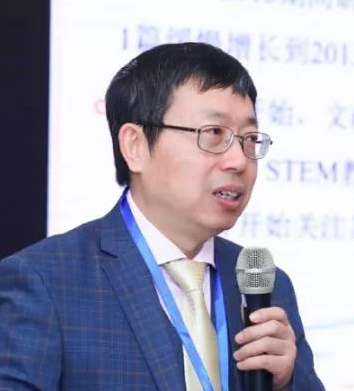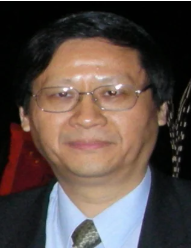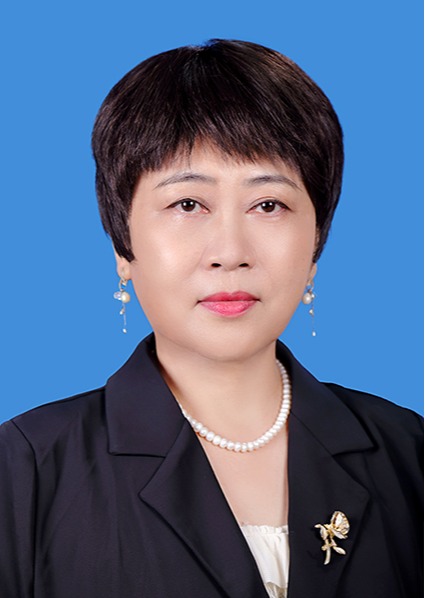| Prof. Baohui ZhangShaanxi Normal University ZHANG BaoHui, former dean of the School of Education at Shaanxi Normal University, is a Qujiang Scholar professor and a doctoral supervisor. He served as the president of the International Council of Associations for Science Education (ICASE) from 2020 to 2023, and was the vice president of the Learning Science Branch of the China Association for Higher Education from 2013 to 2017 and again from 2022. He was awarded the 2021 Outstanding Contribution Award by the East Asia Science Education Association (EASE). His teaching and research focus on the intersection of educational technology, the learning science, science education, and teacher education. He also supervises international doctoral students in comparative education and curriculum and teaching theory. According to the "Statistical Analysis Database of Scientific Research Achievements of Chinese Universities" (China National Knowledge Infrastructure, published in Chinese) in 2020, Professor Zhang ranked third among educational scholars in China in terms of comprehensive index from 2006 to 2019. He has served as the editor-in-chief of the International Journal of Science Education (English) and as a member of the editorial boards of more than ten high-level Chinese and English journals. Google Scholar shows that his English journal papers have been cited 2,555 times, with an H-index of 18. He has reported his and his collaborators' educational research work in 21 countries and regions. SpeechTitle: Opportunities and Challenges of Artificial Intelligence Enhanced Science Education Abstract: Science education is an educational approach aimed at cultivating students' scientific and technological literacy, practical abilities, and innovative spirit, emphasizing the importance of hands-on practice and scientific inquiry. In 2024, the Ministry of Education of China launched the Artificial Intelligence (AI) Empowering Education Initiative, accelerating the integration of artificial intelligence and education. However, while there is great hope for AI to transform education, including science education, and although there are indications that AI is influencing the goals, content, teaching and learning methods, and assessment of science education, presenting new opportunities, the related technologies are still being refined and their application in science education is in the early stages of exploration. So, what are the specific opportunities? What challenges does the application of AI in science education face? The speaker will offer some initial thoughts to spark discussion and looks forward to providing some answers through |
| Prof. Kaiquan ChenOcean University of China Chen Kaiquan, holding a doctoral degree, is a professor at the Basic Teaching Center of Ocean University of China. He serves as the Party branch secretary of the Education Department and the director of the Advanced Learning Laboratory. In recent years, he has presided over or participated in over twenty national, provincial, and ministerial-level scientific research projects. He has published multiple academic monographs with authoritative publishing houses and released more than seventy academic achievements in both Chinese and foreign academic circles. He has been honored with the Outstanding Award for Social Science Research in Shandong Province, the First Prize for Outstanding Achievements in Educational Science Research in Shandong Province, and has consecutively won the First Prize for Provincial Teaching Achievements in Shandong Province for two terms. He is a member of the National Expert Committee on Science Education for Primary and Secondary Schools. Additionally, he serves concurrently as the executive director of the Information Technology Education Professional Committee under the National Educational Technology Association and a director of the Learning Sciences Research Subcommittee of the China Higher Education Society. He is also an evaluation expert for National Social Science Fund projects, a review expert for the Degree Center of the Ministry of Education and for journal papers in CSSCI (Chinese Social Sciences Citation Index) sources, as well as a specially appointed inspector for the Qingdao Municipal People's Government.
Speech Title: Dual-Teacher Classroom with Ternary Interaction and Human-Machine Collaborative Teaching
Abstract: Generative artificial intelligence has already gained relatively widespread application. The transition of AIGC (AI-Generated Content) applications from instrumental rationality to value rationality represents an inevitable trend. To achieve this, it is essential to fully recognize the longstanding and challenging issues in teaching, such as neglecting individual differences and suppressing creativity, delayed feedback, monotonous teaching content and forms, insufficient emphasis on student agency, and a disconnect from practical applications. The construction of a ternary collaboration among humans, machines, and generated content through the application of generative artificial intelligence holds promise for providing effective solutions to these problems. Based on Bloom's Taxonomy of Educational Objectives, corresponding AIGC application scenarios can be designed across three distinct stages: foundational support, intermediate enhancement, and advanced learning, thereby facilitating the concrete transformation of the ternary collaboration among humans, machines, and generated content from conceptual design to teaching implementation. |
| Prof. Hsiao-Hwa ChenNational Cheng Kung University Research Interests
Experience
|
| Prof. Songhua DuGuangdong University of Technology Du, Helen S. graduated from City University of Hong Kong in 2008 and obtained a Doctor of Philosophy degree in Information Systems. She is a professor in the Department of Data Science and Business Intelligence at the School of Management, and a doctoral supervisor. She also serves as the Director of the International Cooperation and Accreditation Center of the School of Management. She is a specially-appointed professor under the "Hundred Talents Program" of Guangdong University of Technology (2014 - 2018). She has many years of teaching and research experience in the fields of e-commerce and information management. Currently, her main research topics include behavioral analysis under digital intelligence empowerment, human-machine-intelligent interaction and game design, pro-environmental behavior and green innovation models, etc. Relevant research achievements have been selected as "Typical Case Research Results" by the Ministry of Education in 2023 and have been cited highly in ESI. She has been awarded two national natural science foundation projects, two provincial natural science foundation projects, and one provincial postgraduate education innovation project. She has published over 40 academic papers in authoritative journals such as International Journal of Information Management, Decision Support Systems, Journal of Cleaner Production, Internet Research, Journal of the Association for Information Science and Technology, International Journal of Human-Computer Studies, "Nankai Management Review", etc. She currently serves as a member of the Editorial Board of the SSRC journal Online Information Review and the deputy editor-in-chief of the EI journal Journal of Information & Knowledge Management. She also serves as a member of the Economic Committee of the Guangdong Democratic League and a member of the Teaching Guidance Committee for E-commerce Programs of Provincial Normal Universities. In addition, she has many years of international practical experience in enterprise information management. She has worked as an information system analyst for several years at Ontario Power Generation in Canada and PCCW in Hong Kong. Speech Title: Inducing Individuals to Engage in Continuance Eco-friendly Action via Gamified Digital Platforms Abstract: Recently, the gamified digital platforms represented by Alipay and Taobao have attracted a substantial number of individuals to continuously engage in eco-friendly actions, by providing highly attractive gamified functions and features, and have achieved great commercial success. This suggests that investigating how gamification design encourages users’ continuous use of digital platforms to conduct eco-friendly actions has important theoretical and practical significance. Drawing on the goal-framing theory and gamification affordance literature, this talk presents our recent study regarding the impact of gamified interaction, namely human-human interaction and human-computer interaction on users’ continuance eco-friendly action. This study contributes to the IS research for environmental sustainability at the individual level. Specifically, it extends the understanding of users’ decision-making on continuance eco-friendly action, and the role of gamification design in reinforcing environmental conservation. |
| Assoc. Prof. Sikandar Ali QalatiLiaocheng University Main research fields: Small and medium-sized enterprise management, green economy. Main courses taught: Academic Writing. Recent major research achievements: l Frontiers in Psychology (Associate Editor)[Hosted special issue: Environment and Organization Sustainability: An Employee Perspective] l Sustainability (Associate Editor)[Hosted special issue: Consumer Behavior and Sustainable Marketing Development in Online and Offline Settings] l Frontiers in Environmental Science (Editor-in-Chief) l Plos One (Academic Editor) l Middle East Journal of Management (Associate Editor) Speech Title: Social media usage by Small and Medium-Sized Enterprises in developing countries Abstract: Although larger firms globally can adopt social media and other internet-based strategies without requiring additional resources, social media can be employed by small and medium-sized enterprises (SMEs) because of its low cost, technical manageability, ease of use, and its capability to connect with and reach an ample number of consumers. The adoption of social media is constantly growing in enterprises in developing countries and is currently considered a key strategy in SMEs; conversely, SMEs are using several social media platforms. It is one of the most popular choices for small businesses in developing countries because it facilitates rapid and clear communication between two parties (e.g., firm-customer relationship), letting companies to understand customer needs and respond competently and proactively to these needs. Social media is also a somewhat low-cost choice for analytics, conversion tracking, content management, automated publishing, and customer targeting. Social media usage by SMEs is regarded as crucial in the entrepreneurship and business literature in developed and developing countries. It also enables SMEs to maintain their competitive position by strengthening customer relationships, positively impacting sales performance. |





